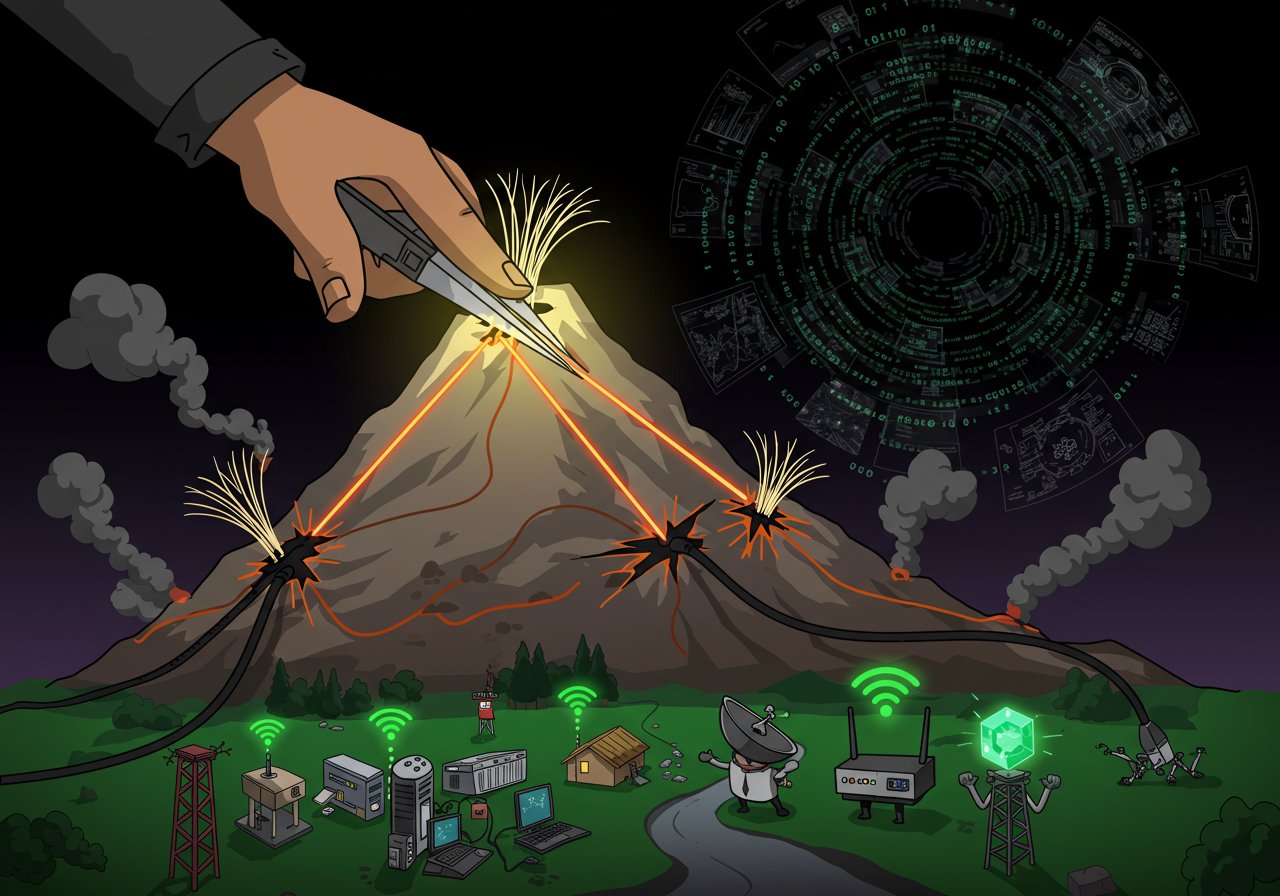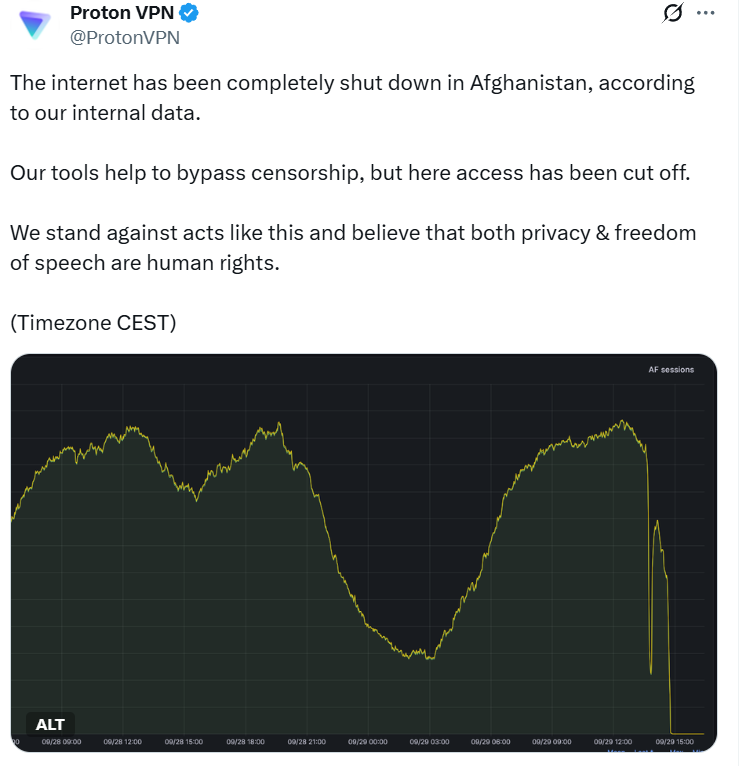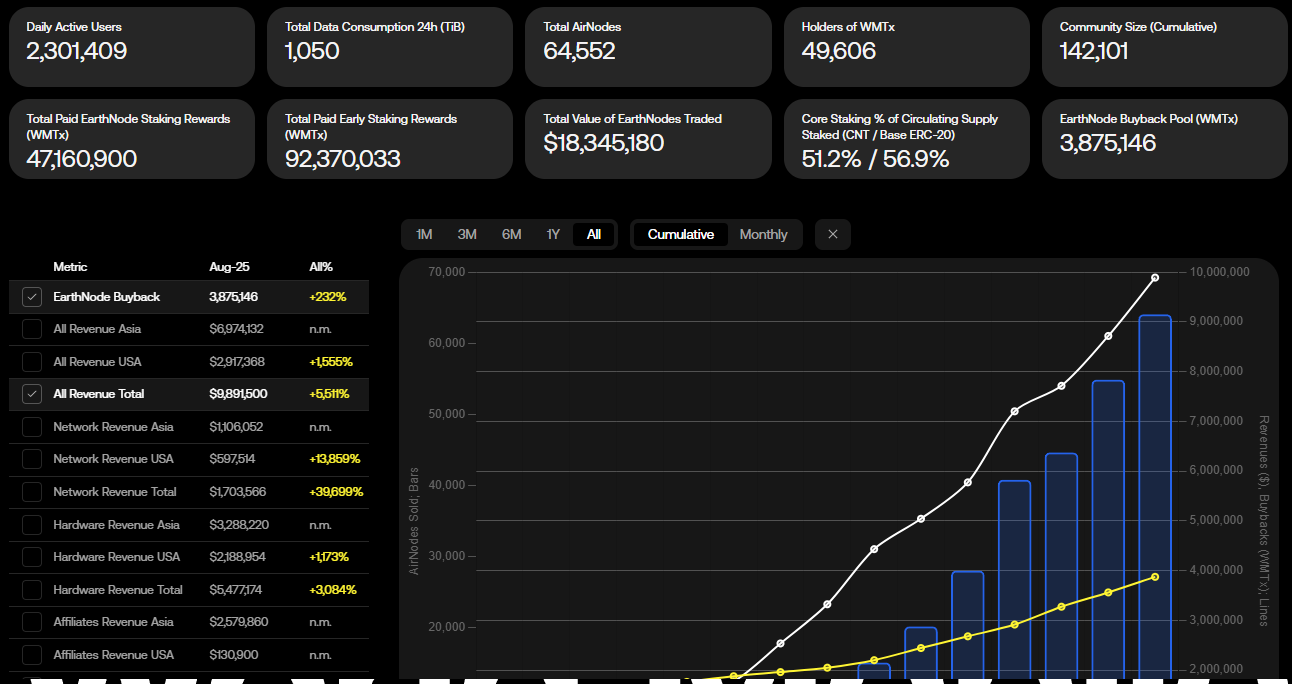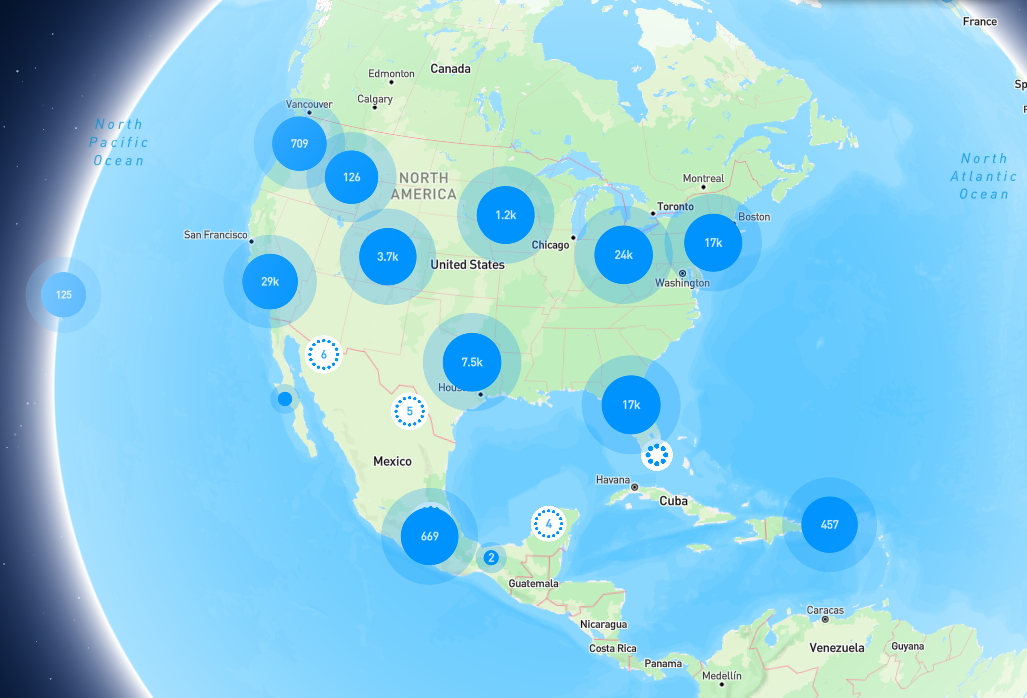
Afghanistan‘s Internet Blackout: A Stark Reminder
The recent internet blackout in Afghanistan, lasting roughly 48 hours, served as a potent reminder of a fundamental weakness within the decentralized world of blockchain. While blockchains strive to offer censorship-resistant, public networks for value transfers, their reliance on centralized internet infrastructure creates a critical point of failure. The Taliban administration’s order, which the regime later attributed to “technical issues,” effectively shut down access for an estimated 13 million citizens.

The Centralized Bottleneck
This incident underscores the stark reality: the promise of blockchain, and its inherent resistance to control, is directly challenged by the centralized nature of internet access. As Michail Angelov, co-founder of the decentralized WiFi platform Roam Network, pointed out, the ability for centralized providers to monopolize connectivity can undermine blockchain‘s core principles. The Afghanistan case is not isolated; Iran, for instance, has also experienced prolonged internet shutdowns, demonstrating the vulnerability of citizens to government censorship and technical disruptions.
Decentralized Solutions: A Path Forward
The Afghanistan outage has catalyzed interest in decentralized solutions to address the inherent limitations of centralized internet providers. This has given rise to the decentralized physical infrastructure network, or DePIN, projects. These projects aim to build decentralized internet infrastructure, removing single points of failure and fostering a more resilient, accessible internet for all.
Exploring DePIN Projects
Several projects are actively working on providing alternatives to traditional internet access:
- Roam Network: Roam is developing a smartphone-powered decentralized wireless network. By crowdsourcing mobile signal measurements, the platform is creating a dynamic map of connectivity. With the incoming eSIM implementation, devices can automatically select the best internet options, including public carriers, private mesh networks, and peer-powered local networks.
- World Mobile: A significant player in the decentralized network arena, World Mobile boasts over 2.3 million daily active users across 20 countries. Its success illustrates the growing demand for independent network solutions.
- Helium Network: Helium is another notable decentralized wireless network with a presence in over 190 countries, incentivizing users to host hotspots for internet coverage using HNT token rewards.


The Future of Decentralization
The Afghanistan internet blackout serves as a crucial test for blockchain‘s ongoing evolution. According to experts, the fight for decentralization must extend beyond the protocol layer. For decentralization to truly succeed, it must encompass the underlying internet infrastructure. Otherwise, control is merely shifted, not eliminated. As decentralized wireless networks continue to develop and gain traction, we may see a future where the promise of blockchain – financial freedom and censorship resistance – is fully realized, regardless of government intervention or technical failures.


